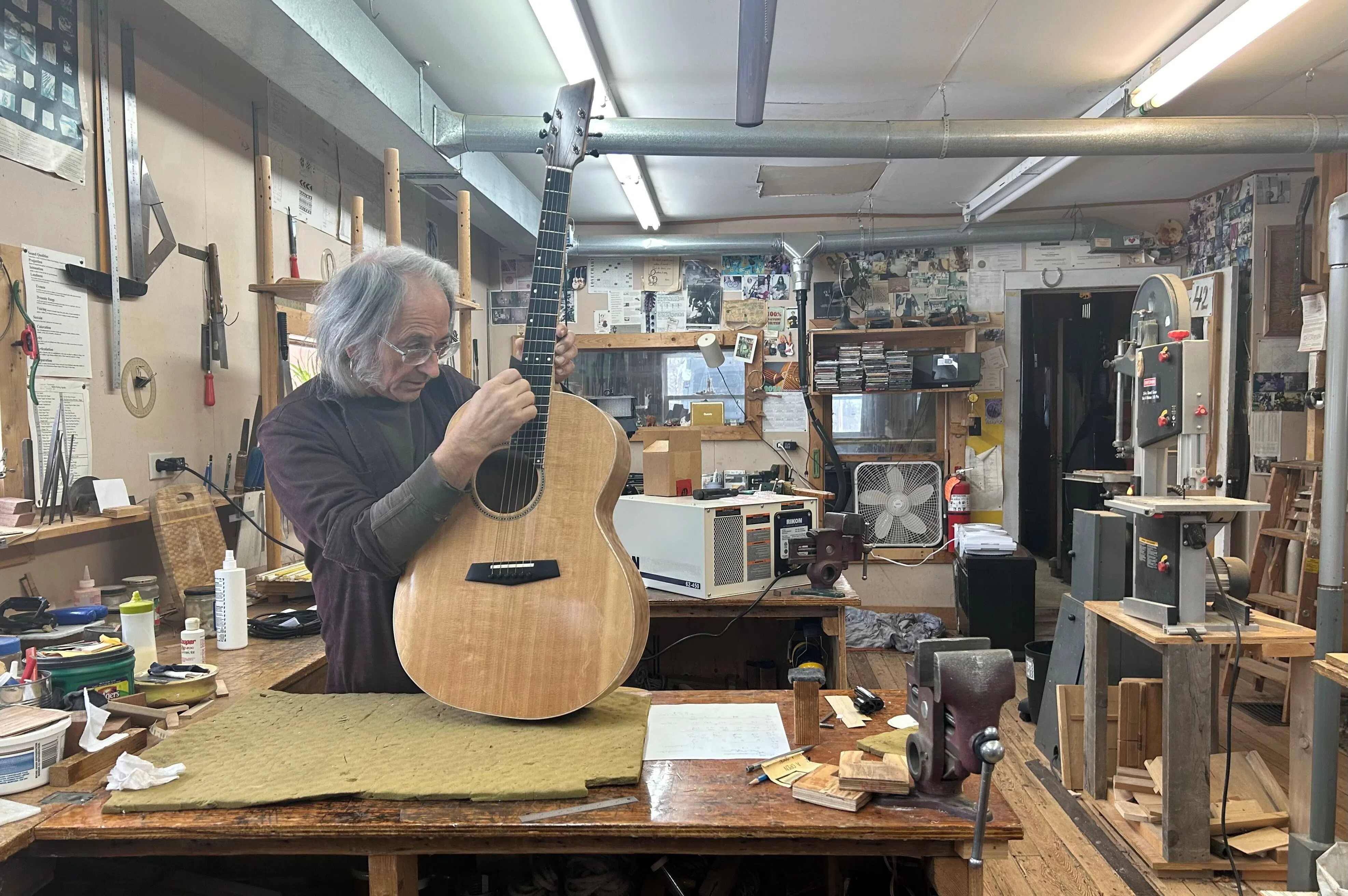Tugaske, Sask. — Nestled between the small rural communities of Eyebrow and Elbow, you’ll find the heart of guitar making in Saskatchewan.
The village of Tugaske has become a world-renowned artistic hub, attracting aspiring luthiers from around the globe.

The village of Tugaske only has a population of about 80 people, but hundreds have trekked to the community to learn the art of lutherie. (Brittany Caffet/650 CKOM)
“A luthier is someone who builds stringed instruments,” explains David Freeman, a master luthier who’s been handcrafting instruments for decades.
Listen to Freeman on Behind the Headlines:
The village might seem like an unlikely destination at first glance, but it has become a haven for hundreds of students eager to learn the art of making a stringed instrument by hand at a school Freeman built from the ground up.
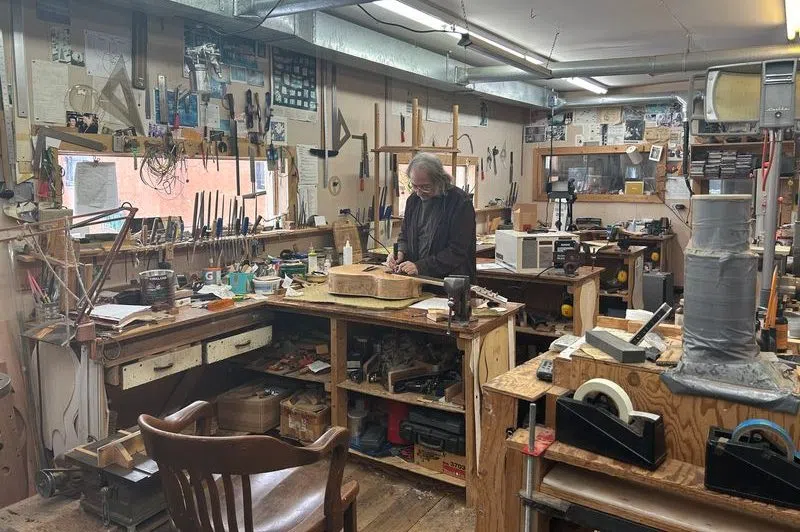
Freeman says he runs two or three courses per year, with a maximum of seven students in each session. (Brittany Caffet/650 CKOM)
“I’ve made guitars, harps, violins, ukuleles, mandolins, bouzoukis, hammered dulcimers, Appalachian dulcimers… This is a really cool way to make a living,” Freeman says with a smile.
Freeman started making guitars long before he settled in Tugaske. His journey began in high school when he repaired a violin that had been passed down from his grandfather.
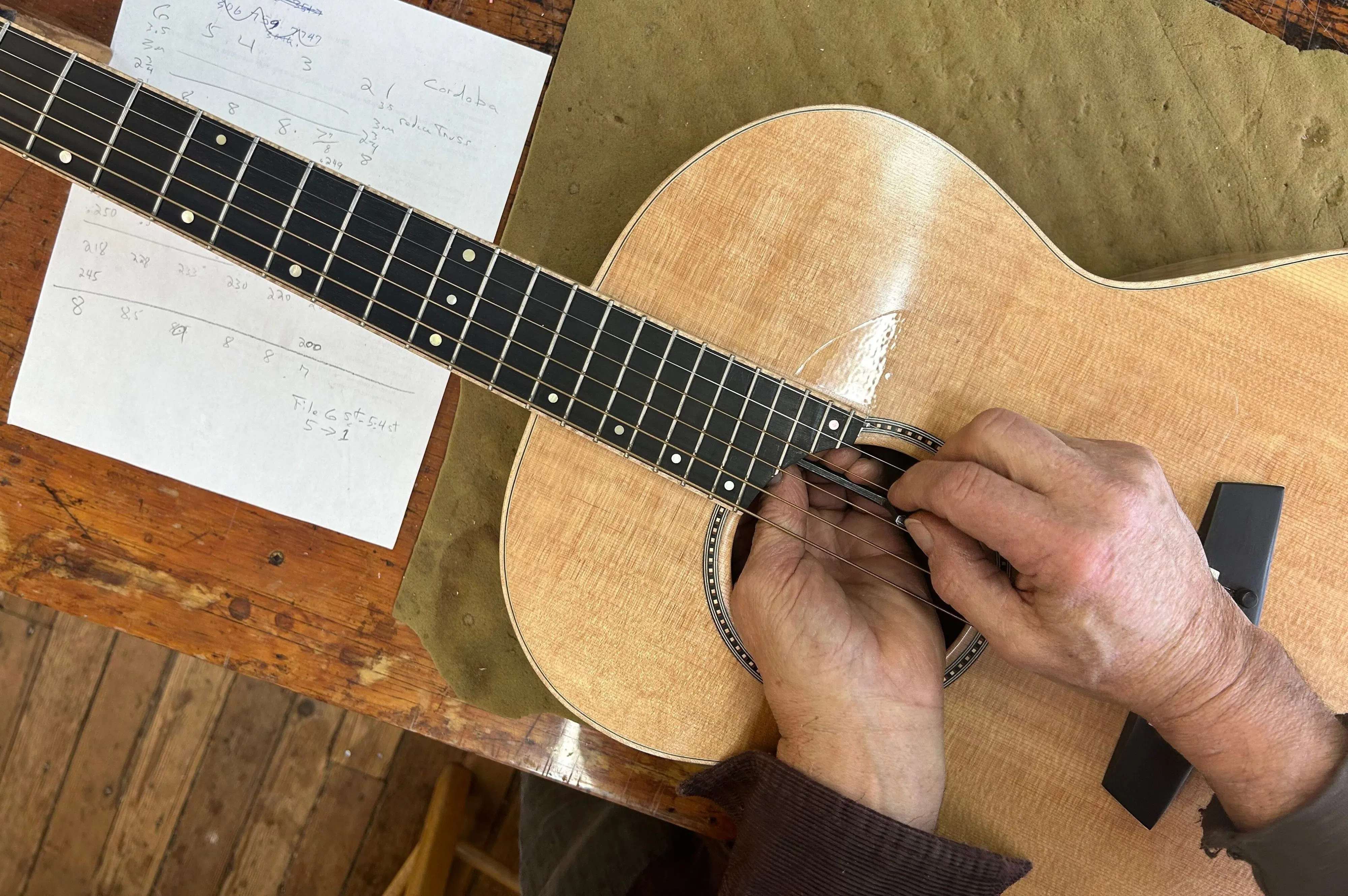
While guitars are the most common instrument Freeman creates, he has also handcrafted harps, violins, ukuleles, mandolins, bouzoukis, hammered dulcimers, and Appalachian dulcimers. (Brittany Caffet/650 CKOM)
He also played guitar, and at 15 he started diving deeper into the craft. “I bought a couple of books, and I was doing repairs on my own instruments. Then I bought a couple of guitars that were in need of repair and fixed them up and resold them,” he recalls.
In 1980 Freeman travelled to Vermont where he took a course and built his first guitar — an instrument he still plays today.
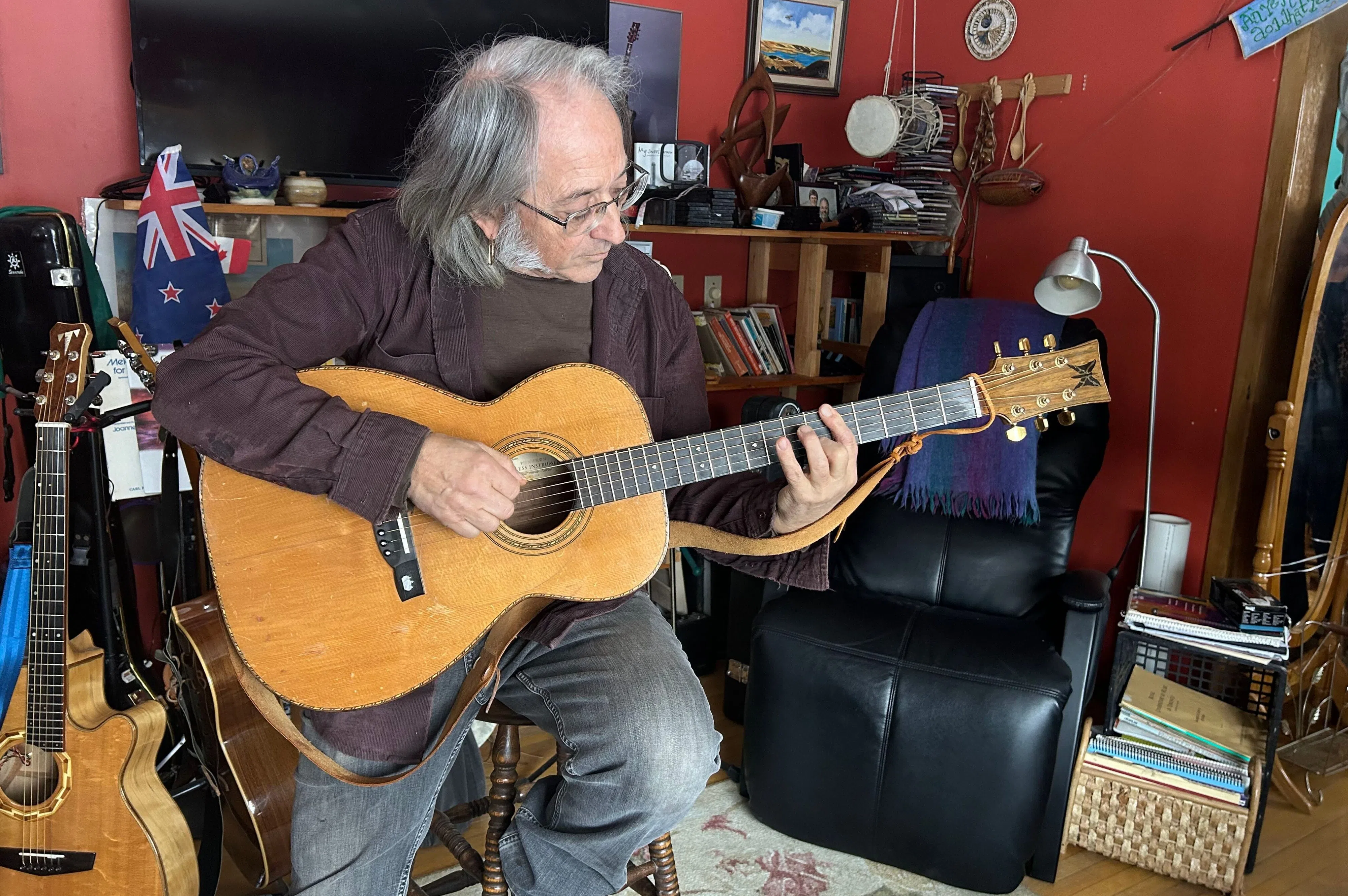
David Freeman made his first guitar in 1980. He still plays the instrument today. (Brittany Caffet/650 CKOM)
While Freeman has lived in multiple Canadian provinces, he chose Saskatchewan as his permanent home. In 1986 he moved to Tugaske and from 1991 to 2021 he opened a licensed private vocational school. Now, he runs Timeless Instruments. The seven-week course has attracted more than 750 students from places as far as Malaysia, Japan, and Argentina.
Read More:
- ‘Game changer’: Salthaven West sees success with bat hibernation program
- A close look at the research projects at the Royal Saskatchewan Museum
- Lost internal support behind Trudeau resignation, political scientists say
“I’ve had people from 26 different countries,” Freeman says with pride. “It’s amazing. About 80 per cent of them have no woodworking knowledge when they come, and they still build a really good guitar.”
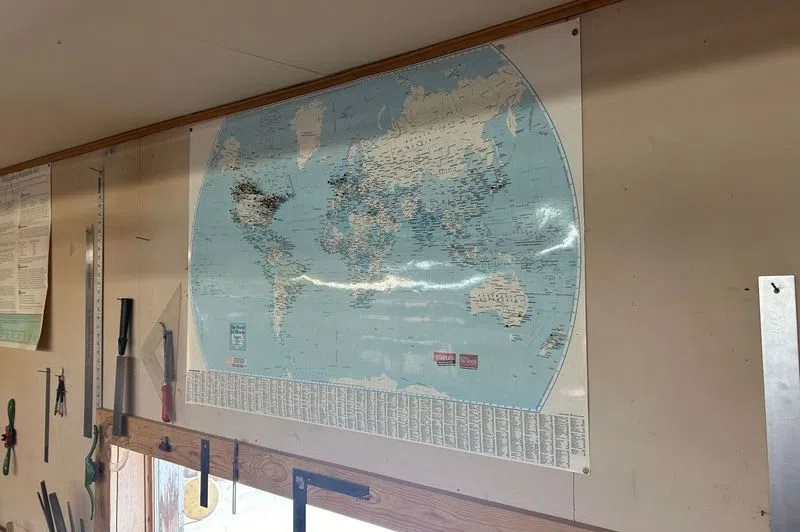
Students from around the globe have travelled to Tugaske to study under Freeman. Many have placed a pin on a map on display in the workshop to mark where they are from. (Brittany Caffet/650 CKOM)
Each student designs and builds their own guitar from start to finish, working step by step to bring their instrument to life.
But building a guitar isn’t easy. It requires precision, patience, and the right tools. Freeman uses a combination of hand tools and specialized equipment to craft each instrument. From planes and chisels to files and scrapers, every tool has its purpose.
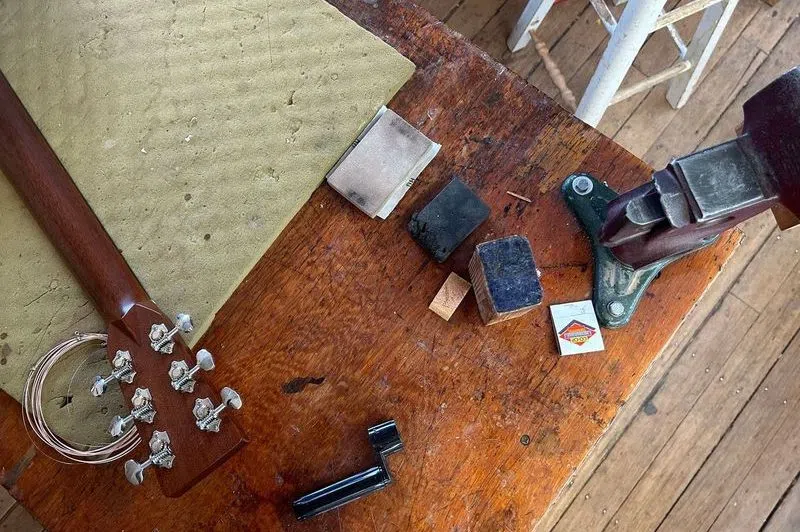
Freeman uses a wide variety of tools to both build and repair instruments. (Brittany Caffet/650 CKOM)
“The most common tool I use is a number four smoothing plane,” Freeman explains. “It’s all about getting the wood just right. I also use finger planes and gouges for carving, especially when it comes to shaping the bracing inside the guitar.” These tools allow Freeman to carefully craft every curve and detail, ensuring every guitar that leaves his workshop sounds as beautiful as it looks.
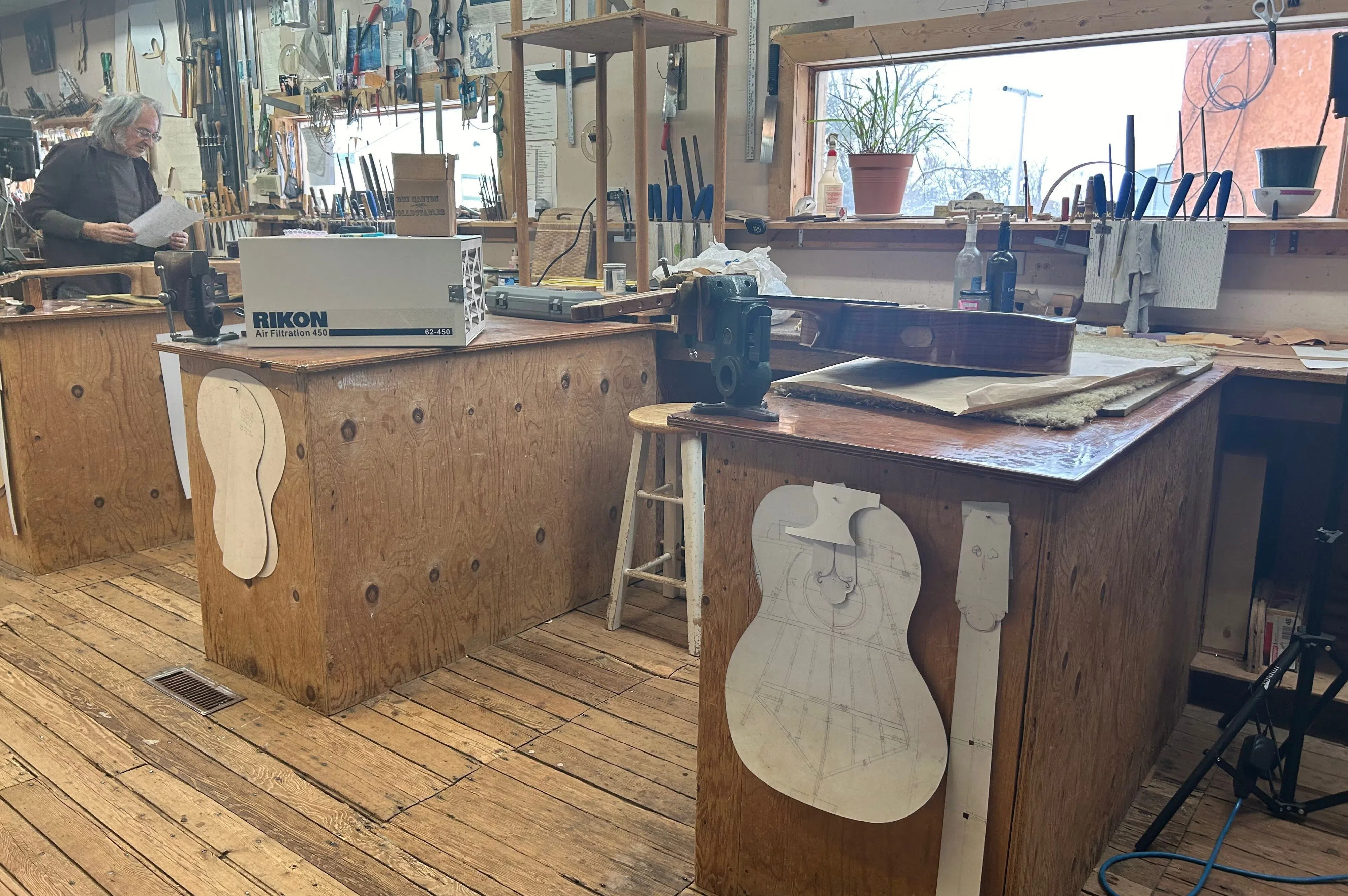
Freeman says the very first task students complete during his course is designing their guitar on paper. (Brittany Caffet/650 CKOM)
A big part of the process is working with different types of wood, each with its own unique properties. “There’s a lot of science, a lot of physics,” Freeman says, talking about the wood selection process. “Every piece of wood is different.”
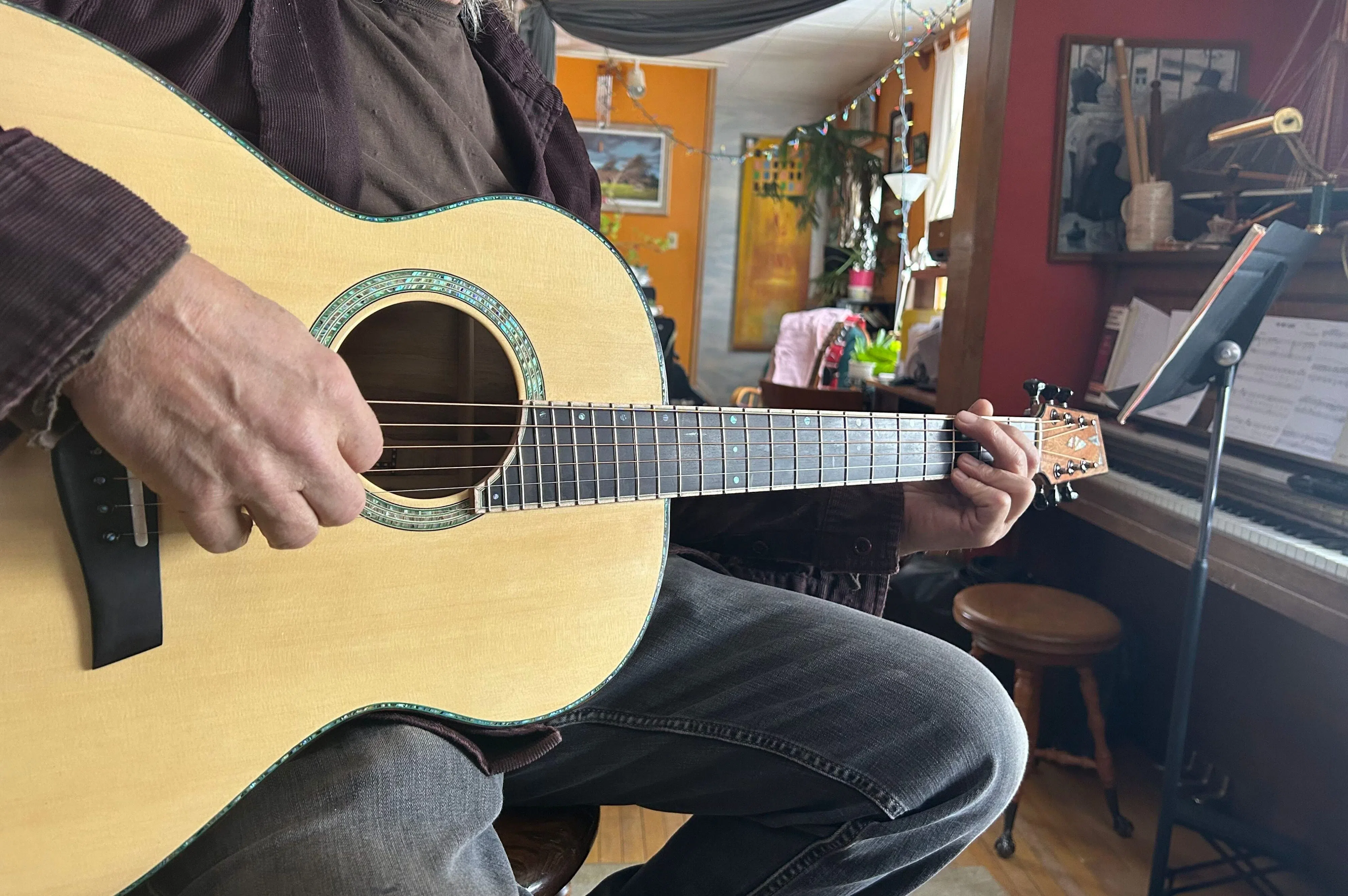
Freeman says spruce and maple are common choices for some guitar makers, but he prefers to source rare wood from around the globe to craft his instruments. (Brittany Caffet/650 CKOM)
Freeman says spruce and maple are common choices for some guitar makers, but he prefers to source rare wood from around the globe. “I’ve got some native olive that I just used that comes from Tasmania,” he says. Freeman also uses ancient kauri in his workshop, a valuable wood that comes from kauri trees that were buried in peat swamps in New Zealand thousands of years ago.
The variety of wood choices available within the Timeless Instruments workshop makes each guitar Freeman and his students create one-of-a-kind.
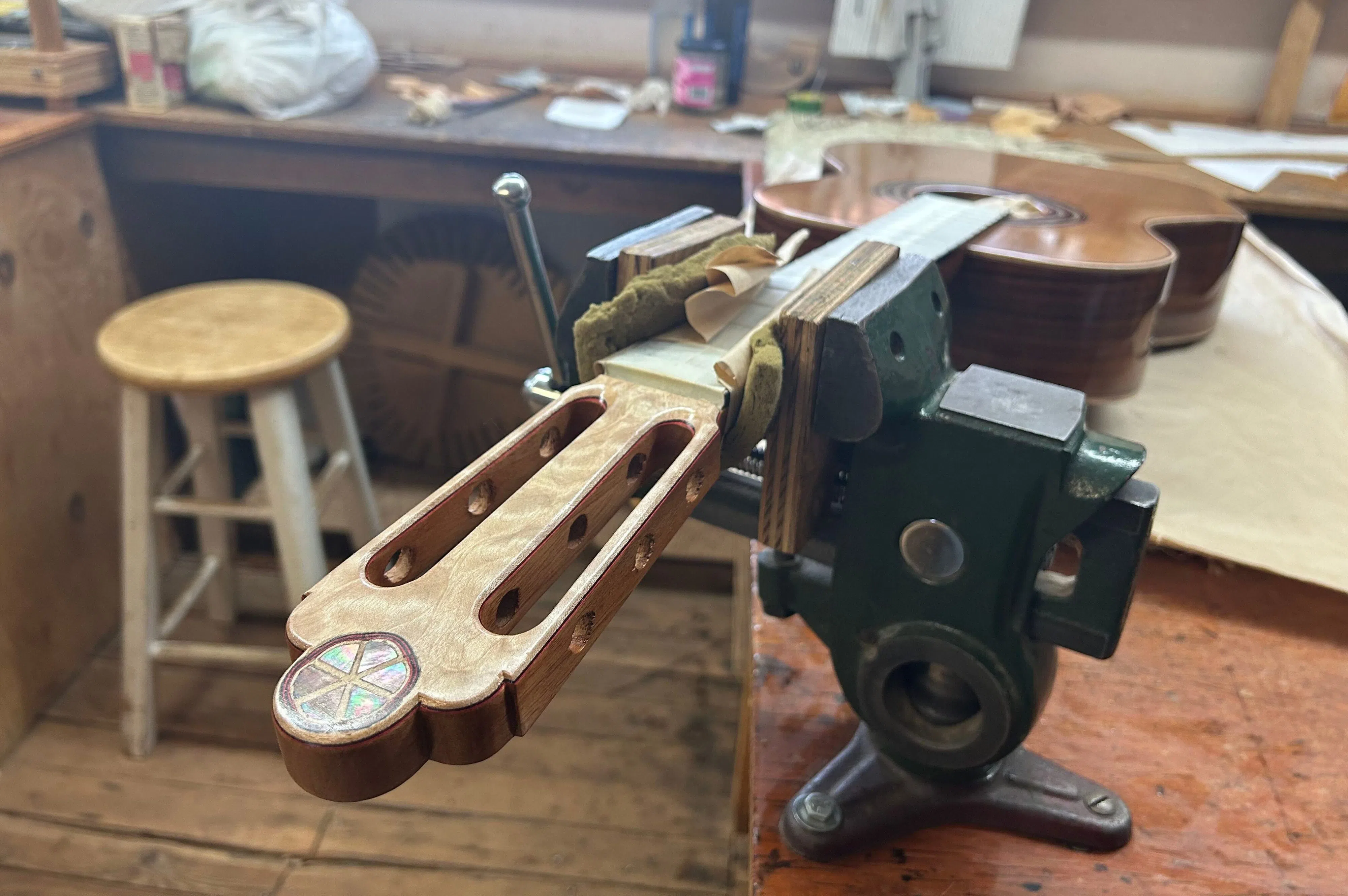
During a seven-week course, Freeman’s students design and build a guitar step by step. (Brittany Caffet/650 CKOM)
Students spend seven intense weeks in the small, rural community, living together in a dormitory Freeman set up across the street from his workshop. It’s an immersive experience that goes beyond learning how to build a guitar.
“They’re living and breathing and working together,” Freeman says of the students, who often form close friendships during their time in the village.
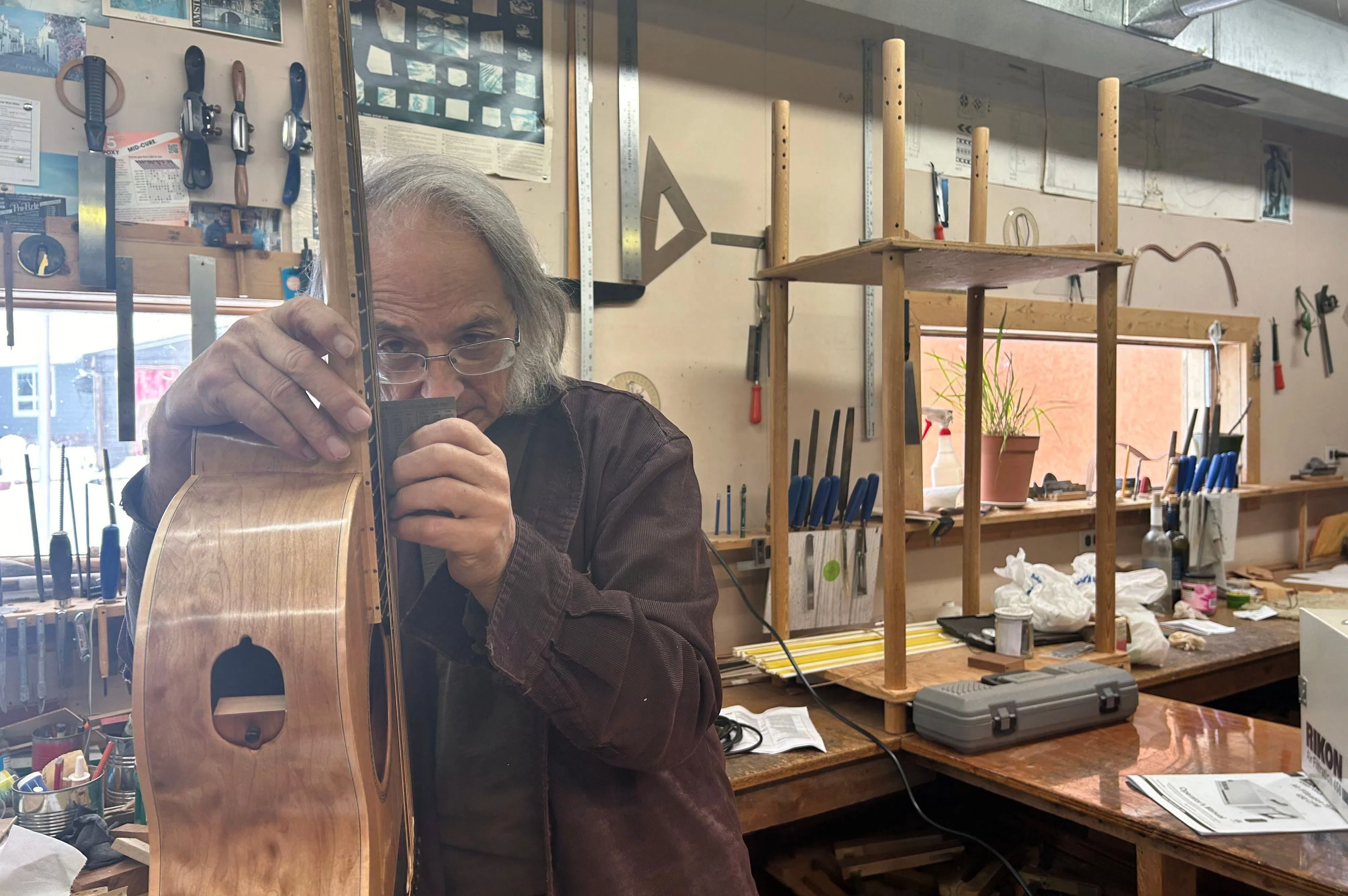
Freeman says building a guitar requires precision, patience, and the right tools. (Brittany Caffet/650 CKOM)
The age range in his classes is wide, from 16-year-olds looking to start a new hobby to 76-year-olds seeking a creative outlet. Some go on to start their own businesses, while others just gain confidence in their ability to build something with their own hands.
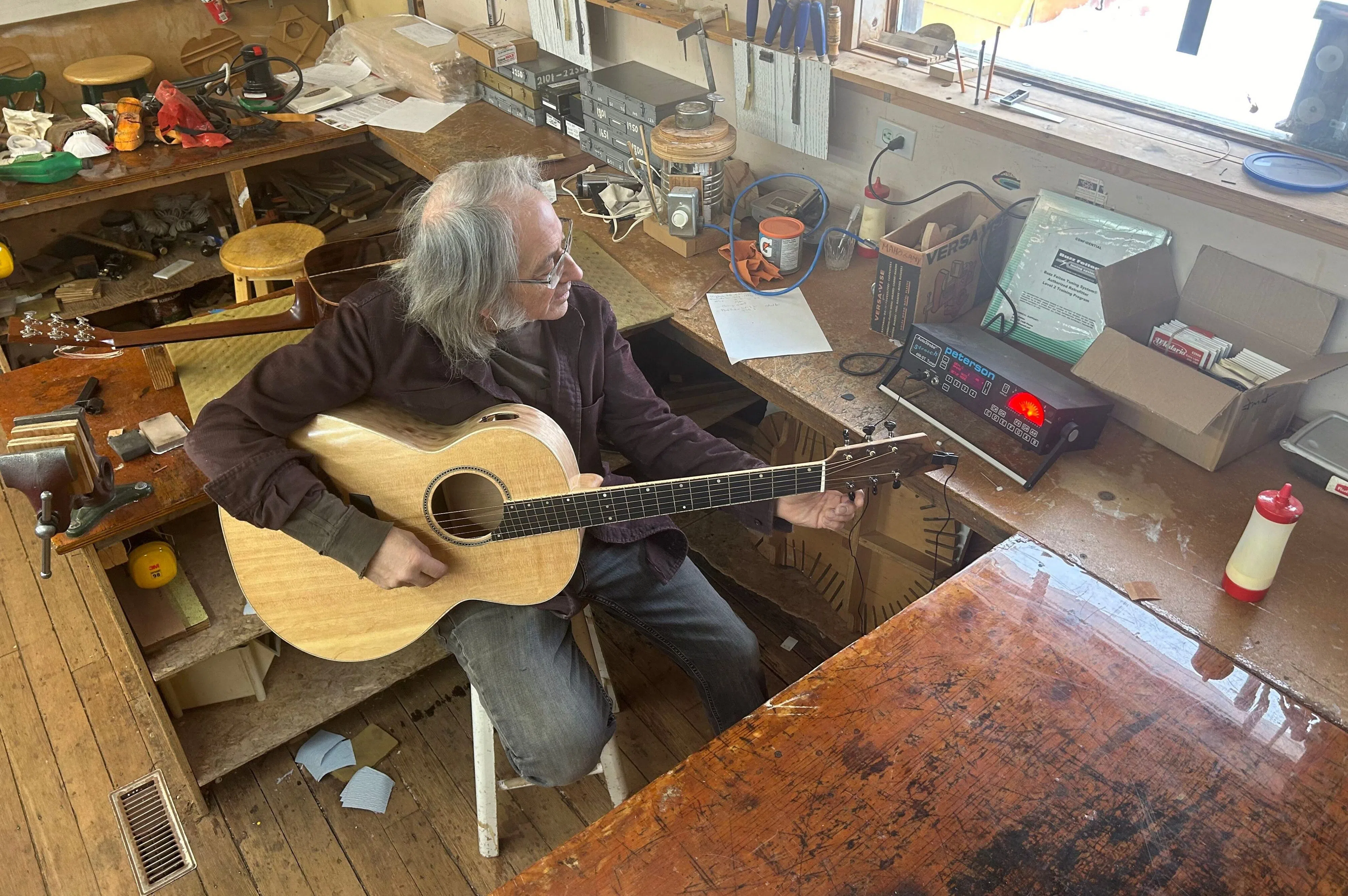
Freeman uses a combination of hand tools and specialized equipment to craft each instrument that leaves his workshop. (Brittany Caffet/650 CKOM)
The school brings visitors to Tugaske who might otherwise never have come to Saskatchewan. For Freeman, it’s a way of sharing the beauty of his craft and the tranquillity of rural life. “You ask why I live in Tugaske, and my answer is ‘Because I can,’” he says with a gleam in his eye.
As for the future, Freeman shows no signs of slowing down. His work continues to inspire and shape the world of guitar-making, and his courses will go on to teach new generations of students.
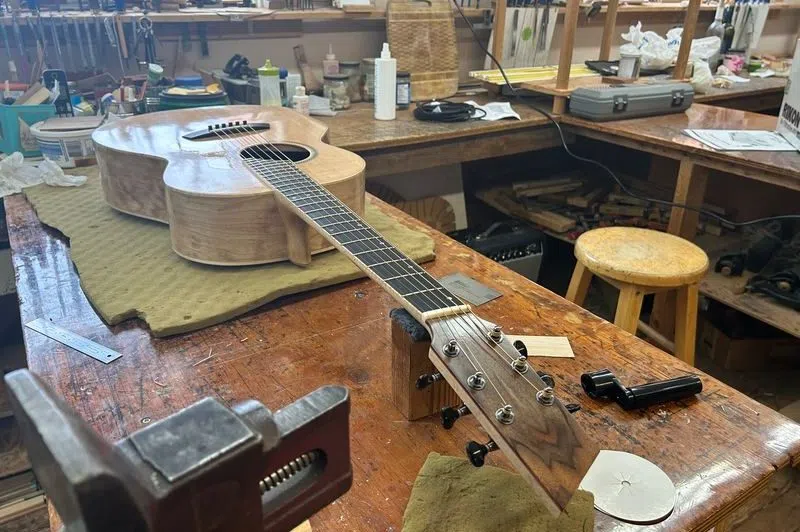
Freeman says his favourite part of making a guitar is putting on the strings and hearing if all of his hard work has paid off. (Brittany Caffet/650 CKOM)
The next seven-week course begins Feb. 24, giving aspiring luthiers the chance to spend weeks learning from one of the most passionate and experienced in the business.
“A lot of people thought I was crazy when I started. Not anymore,” Freeman smiles, reflecting on the road he’s travelled. “I think that’s a pretty cool thing.”
